UNDP begins recovery after Cyclone Mocha
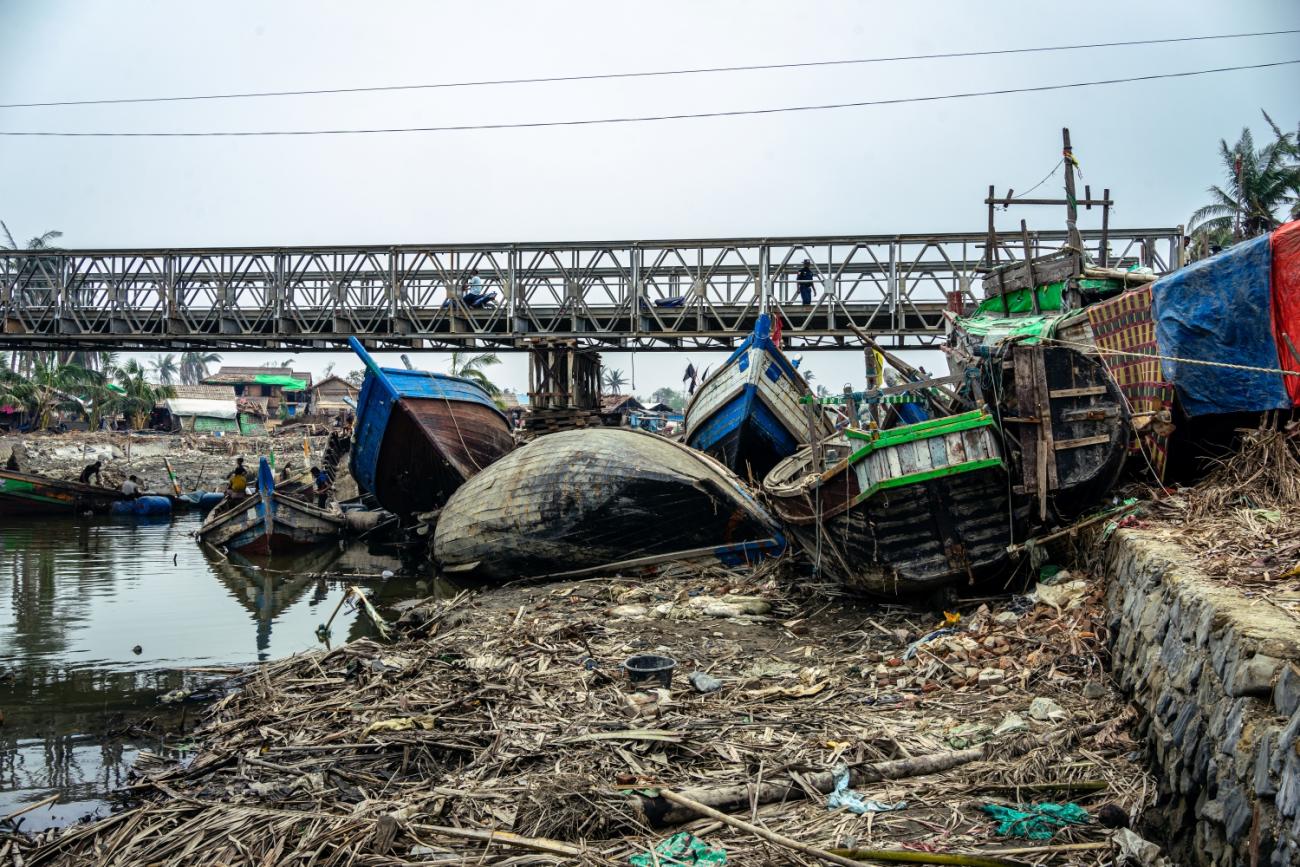
The tropical storm devastated coastal communities in Rakhine State, destroying homes, infrastructure and livelihoods.
Cyclone Mocha was one of the strongest cyclones ever recorded in Myanmar when it made landfall in Rakhine State on 14 May, causing widespread devastation. At its fiercest, windspeeds reached more than 250 kilometres per hour.
Almost 7.9 million people are estimated to have been in the cyclone’s path, which caused severe damage as it moved inland to the country’s northwest. The humanitarian community in Myanmar has launched a Flash Appeal to raise US$333 million to assist 1.6 million people.
The scale of the work needed to recover is immense. The communities hit hardest were already among the most impoverished and disadvantaged in Myanmar, suffering years of conflict, displacement, and economic marginalization. Rakhine has the second-highest poverty rate in the country, with two-thirds of people living below the poverty line.
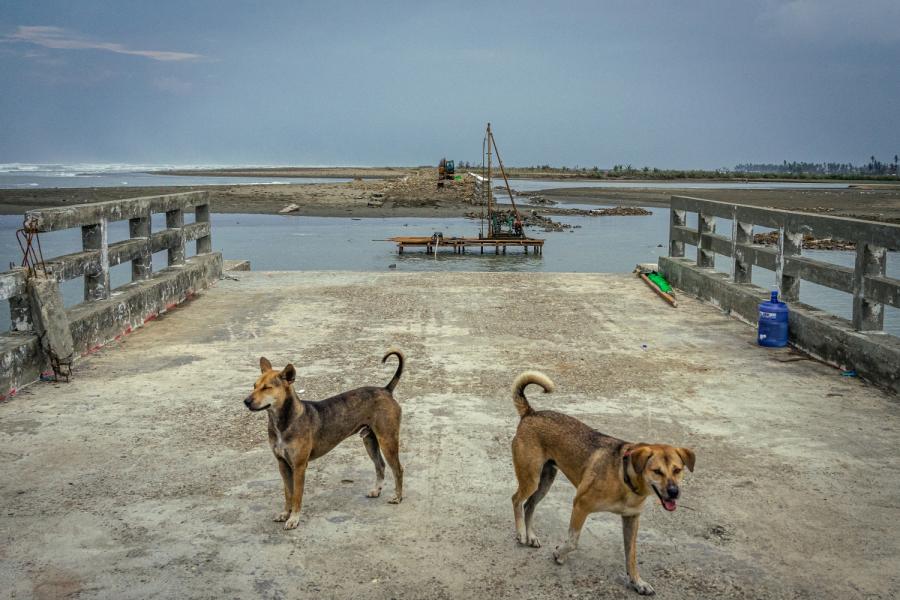
In Rakhine State, some 1.9 million people have been affected. The de facto authorities report that at least 145 people died in the cyclone, although other sources put this higher.
The storm surge and winds in Sittwe, the state’s capital, damaged almost every building. Bridges collapsed, fishing boats were left in ruins, and healthcare facilities and schools were destroyed. About 1,182 square kilometres of land were flooded, killing livestock, and contaminating drinking water and farmland. Prices of food and the supplies needed to repair damaged homes and infrastructure have soared.
UNDP is responding to immediate needs, reaching more than 60,000 people so far. We are focused on helping communities recover as quickly as possible and supporting people to rebuild their livelihoods so they can get back on their feet.
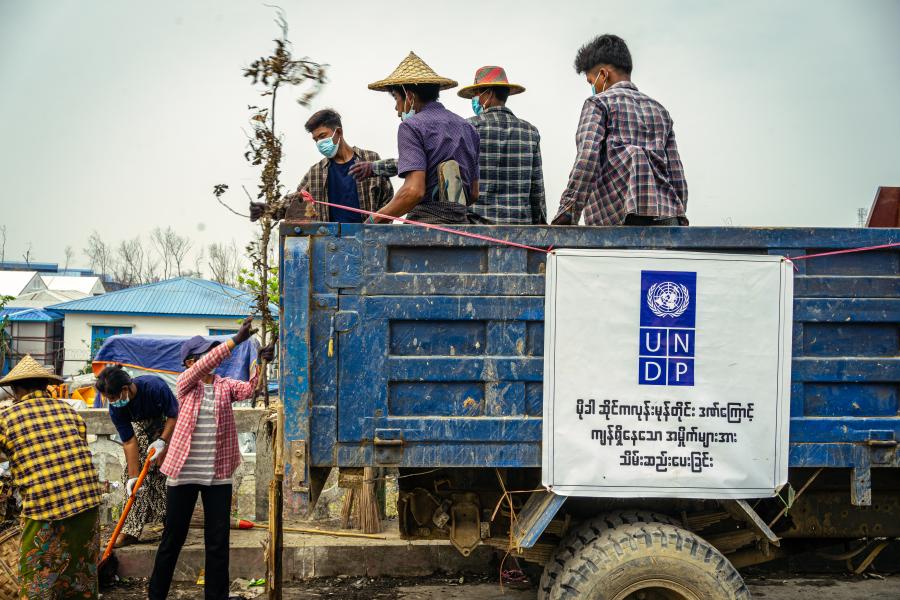
The first order of business is to repair infrastructure and clear roads. This enables businesses to stay open, aid to be delivered and essential services to resume. UNDP provides people carrying out this work an income, with most of the participants being women and people from internal displacement camps.
Ma Mya Win, who fled fighting to a camp in Sittwe in 2019 and participated in UNDP’s debris clearance, said; “I have become jobless as the tailor shop I used to work in was destroyed by the cyclone. The building collapsed to the ground. The owner has been trying to rebuild it, but it is complicated as the price of the construction materials is double what they used to be.
“I am thankful I found this job while waiting to be back to my tailoring job. I will use this money to buy food for my family. As you know, the food price in Sittwe doubled, and it is difficult for us to feed the children. And the back-to-school season is coming soon [in June] and that money would really help me buy stationery and pay tuition fees for my child.”
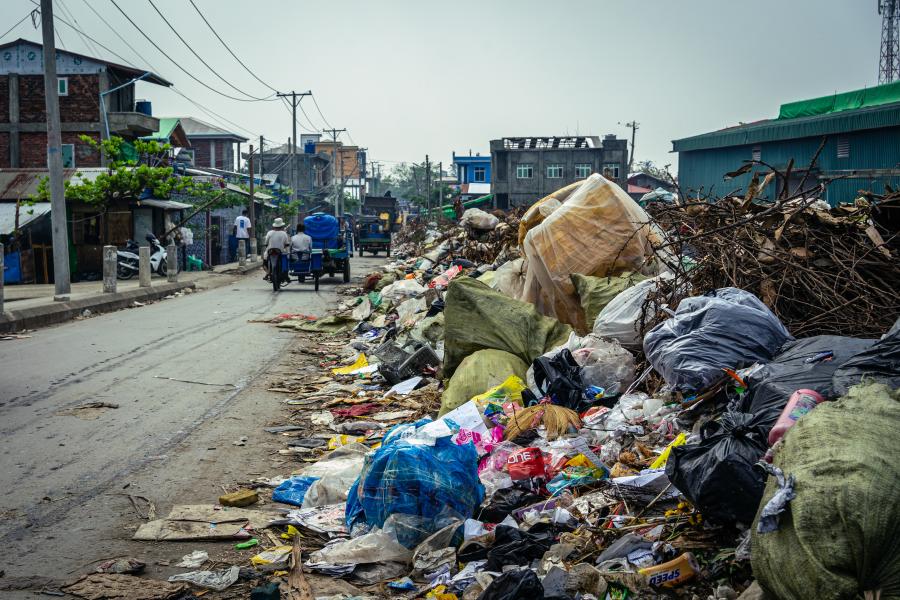
Our teams are also distributing seeds and organic fertilizer to provide families with both food to eat and sell, as well as supplies to fix their homes before the monsoon rains come.
With drinking water ponds inundated with salt water and mud, UNDP is drilling new boreholes, and cleaning wells. This is vital to prevent the spread of waterborne diseases.
UNDP has also brought people together through community kitchens in Sittwe, covering food and labour costs while local residents cook for as many as 1,000 people.
UNDP is well-placed for both short- and long-term recovery, with a well-established presence in Rakhine State and a wide network of trusted partners. As soon as possible, we will also begin repairing critical infrastructure such as the bridges and village embankments that protect agricultural land.
Other plans include providing support to fishers and farmers to restart their work, helping small businesses to gain access to markets and cash, and ensuring that women have equal employment opportunities.
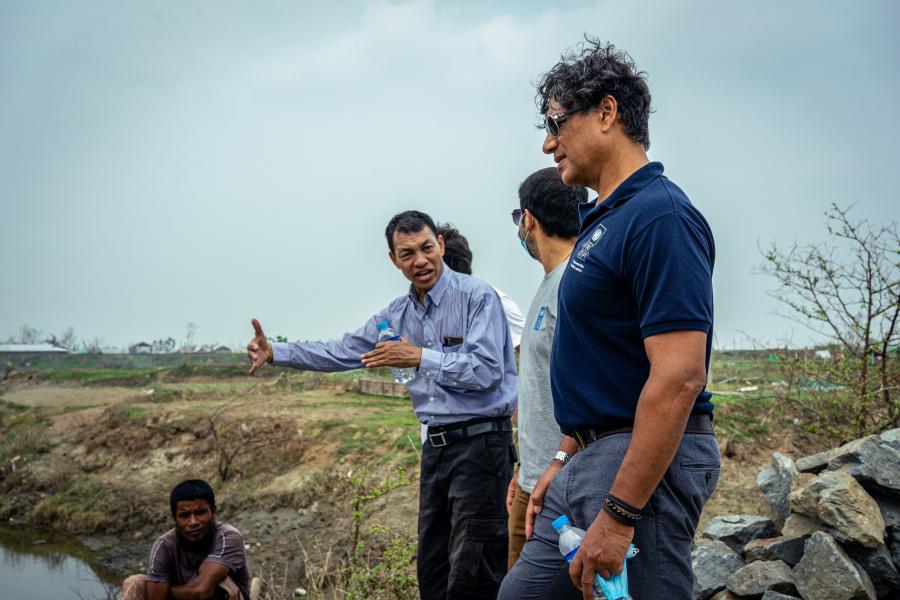
“The road to recovery for those affected by Cyclone Mocha will be long, but UNDP is ready to meet people’s critical and immediate needs,” said Titon Mitra, UNDP Myanmar Resident Representative.
“We will help people rebuild their livelihoods as quickly as possible so they can earn a stable income and be more resilient to future disasters. We are committed to helping communities rebuild stronger, and ensuring support is sustainable for the weeks, months and years ahead.”







